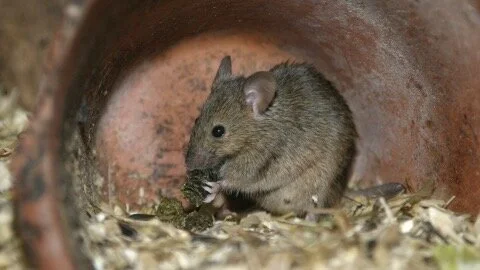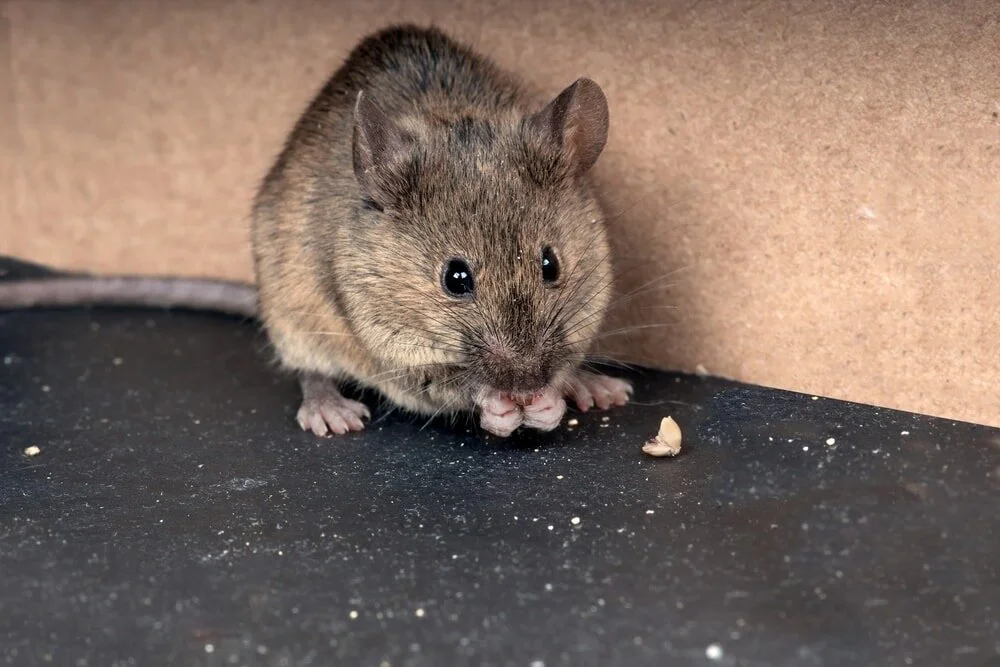House Mouse (Mus musculus)
Mouse Biology
Adult house mice are about 2½ to 3½” long, with a tail that’s around 2¾ to 4” long. They weigh around ½ to 1 ounce and have smooth, dust-grey, brownish, or dark grey fur. House mice are highly prolific breeders. They reach sexual maturity in just 35 days. Pregnancy lasts an average of 19 days. Under ideal conditions, a female house mouse can give birth to 36 to 72 offspring per year.
Mouse Behavior
Mice are nocturnal and very social. House mice prefer to build nests inside their territory in dark, cramped, secluded areas where they can remain hidden. They build these nests out of any soft, chewable material they can find near prospective nesting sites.Mice like to move between different cover and shelter when foraging, so they can remain as hidden as possible.
Mouse Concerns
Mice cause millions of dollars’ worth of damage to homes and businesses each year. Mice love to chew on electrical wires. Twenty percent of all home fires with unknown origins are generally attributed to rodents like mice chewing through electrical wires. Mice have been known carriers of Leptospirosis, Histoplasmosis, and Salmonellosis. Many of these diseases are very serious and some can even be fatal to humans.
Mouse Control
First, Huntsman Wildlife Professionals will identify the access points where house mice are getting into your home. We’ll make small repairs to seal up access points ourselves and recommend how to repair the larger ones. Then, we’ll strategically set up trapping stations in house mouse territories where they’ll be as effective as possible. Our mouse trapping can be a one time fee for a little as $215 start as low as $35 a month for our Rodent Protection Plan both for up to a 2,000 square foot home.




